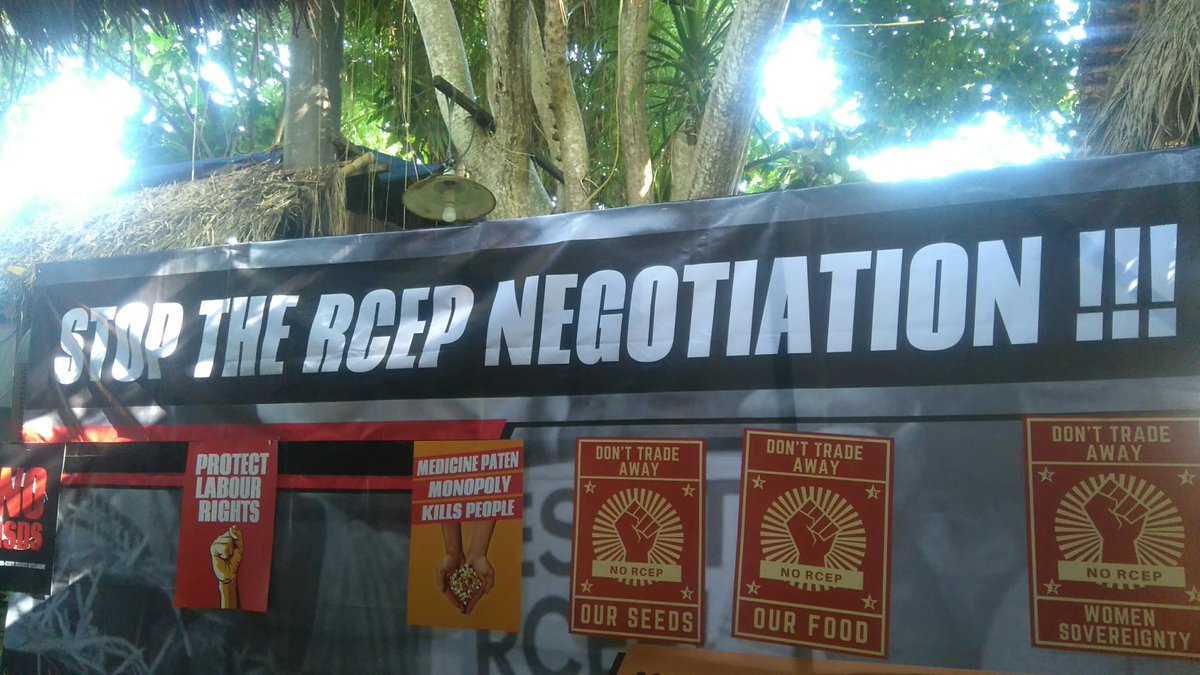Australia says ‘long way to go’ to reach RCEP deal
The Scoop - 29 July 2019
Australia says ‘long way to go’ to reach RCEP deal
By Ain Bandial
As trade ministers gear up for another meeting in Beijing this week, what will it take to break RCEP deadlock?\
Australia has cast doubt on whether the 16 countries that make up the Regional Comprehensive Economic Partnership (RCEP) will be able to thrash out a deal by year’s end, with disagreements between China and India undercutting talks in recent months.
“To be perfectly honest it is going to be difficult to get there, I think we do have a long way to go,” Australia’s assistant trade and investment minister Mark Coulton said during a recent roundtable with visiting Southeast Asian journalists.
At the last ASEAN Summit in Bangkok in June, leaders set a November deadline to conclude the RCEP pact, which covers the 10 ASEAN countries plus China, India, Australia, New Zealand, Japan and South Korea.
The agreement would represent 3.5 billion people and account for 39 per cent of global GDP.
But India’s resistance to scrapping tariffs and other roadblocks have impeded progress, with New Delhi concerned that the deal would lead to Chinese goods flooding its massive consumer market.
Protectionist sentiments surrounding the manufacturing and agriculture sectors, as well as freer movement of labour across borders, has also proved a sticking point for large exporting nations like Australia.
“India has expectations or hopes with labour movement, which would be very sensitive to us… and as [Australia is] a large agricultural exporting nation, the fact that we will see open markets… obviously that is sensitive to them,” Coulton said.
“India and China also see themselves as being in the same market as manufacturing countries, so these are all major tensions that need to be overcome.”
RCEP without India?
After seven years of RCEP negotiations, nothing concrete has emerged and officials are insisting that they are in the last-chance saloon to wrap up a deal to make the 16 countries the world’s biggest free-trade zone.
As a way to expedite talks, China and Malaysia have raised the possibility of leaving India out of RCEP for now — but only for Delhi to join at a later date.
But this means the agreement would face a similar hollowing out as the Trans Pacific Partnership after the US withdrawal, if India and its US$2.6 trillion economy is temporarily left out of the mix.
Veteran trade consultant Deborah Elms, who has taken part in the bulk of the RCEP’s 26 rounds of talks, said there is more than an inkling of truth to officials’ claims that it is now or never for the pact.
“[The delay] is not ideal. But if the alternative is no deal at all, many have suggested it is long past time to make such a decision,” Elms, who is executive director of the Singapore-based Asian Trade Centre, told the South China Morning Post.
“RCEP is at 26 rounds of negotiations and counting. With every year, election cycle, new government, changing economic circumstances, and so forth, it gets harder to adjust the deal on the table to match new realities.”
Unease over US-China trade tensions
Thailand, which is chairing ASEAN this year, has tried to rally governments against global protectionism and called for urgency in concluding talks on RCEP — especially to offset theimpact from the ongoing trade war between the US and China.
In the chair’s statement released at the end of the ASEAN Summit last June, Southeast Asian leaders said RCEP was needed “to reinvigorate international trade and to maintain ASEAN credibility and centrality”.
New figures from the World Trade Organisation show tit-for-tat reactions to the rising tensions have seen import restrictions rise to to 3.5 times the level of 2012 across the G20 – a pattern described as “worrying” by trade analysts.
Coulton said Australia’s expansive trade agenda — with the US and China being two of its biggest partners — means the country needs to its spread risk by engaging in a number of bilateral and multilateral agreements.
It has also launched negotiations for an FTA with the European Union; and is exploring a prospective Australia-UK FTA in the wake of Brexit.
“That’s why we are very determined to get to a conclusion on RCEP, and that’s why we have done the individual trade agreements with Hong Kong; the TPP-11, which has opened up opportunities in Canada, Mexico as well as the Asian countries.”
He added that the political sensitivities surrounding RCEP’s impact on domestic industries might make some governments hesitant to make commitments because of the political fallout.
However, the assistant minister noted that recent elections in India, Thailand and Australia may give governments a broader mandate to push ahead with RCEP.
“I think there might be more of an opportunity now for people to step out and come to an agreement that might not be perfect for every country, but to get an agreement that is acceptable to everyone… So I’m hopeful but it is going to take a big effort from everyone to get there.”






